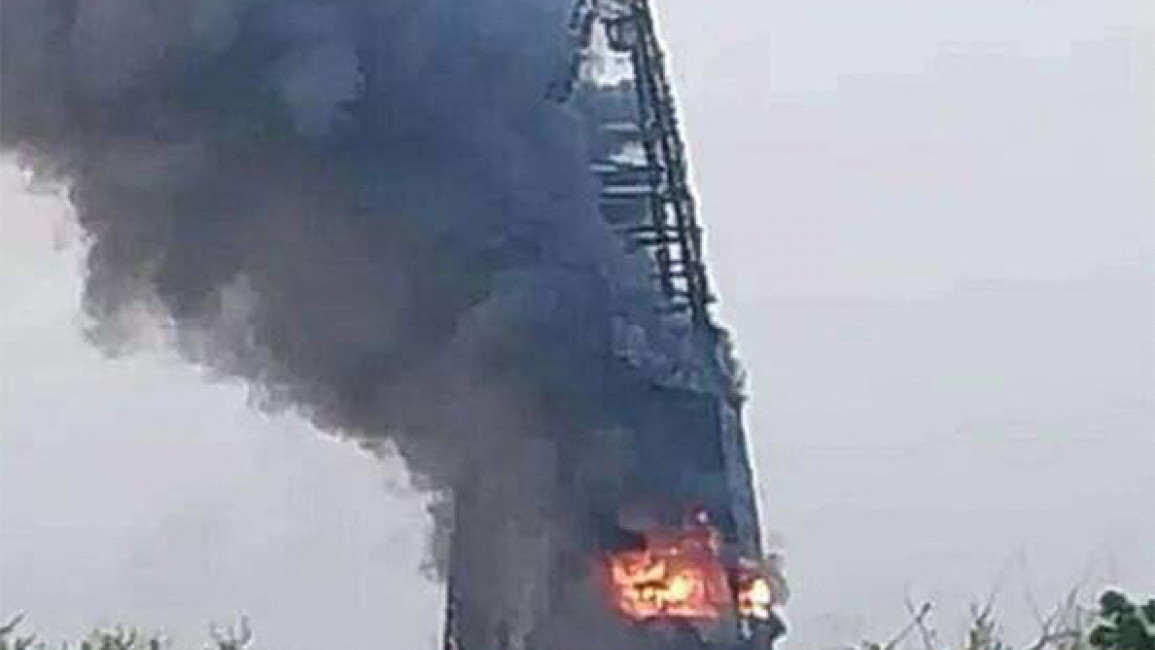Flames destroy landmark tower in Khartoum as Sudan war enters sixth month
One of Sudan's main landmarks, a skyscraper that towered over the River Nile and housed the headquarters of a major oil company, has been reduced to a smouldering wreck amid heavy fighting between rival military factions in the capital.
The Greater Nile Petroleum Operating Company head office, a glass-sided tower topped with a coil of metal, was built during an oil boom before South Sudan declared independence in 2011, and was one of Sudan's most costly constructions.
Flames and smoke rose from the building in a financial district of Khartoum, close to the confluence of the Blue and White Niles and to areas fought over by Sudan's army and the paramilitary Rapid Support Forces (RSF).
فيديو لحريق هائل في برج شركة النيل للبترول في الخرطوم اليوم.#السودان pic.twitter.com/xS4qYt3SA1
— Sudan News (@Sudan_tweet) September 17, 2023
صور متداولة لآثار حريق كبير في برج شركة النيل للبترول في مقرن النيلين بالخرطوم، جراء احتدام العمليات العسكرية في الخرطوم بين الجيش ومتمردي الدعم السريع.#السودان pic.twitter.com/TD4rfG9xCG
— Sudan News (@Sudan_tweet) September 17, 2023
It is unclear what caused the fire that burned through the tower from Saturday. The RSF accused the army of targeting it along with other important buildings amid efforts to dislodge paramilitary fighters from positions they occupied across the capital early in the conflict.
Sudan's foreign ministry, which is aligned with the army, released a statement on Monday accusing the RSF of setting fire to "a number of major economic institutions and commercial buildings" over the past two days, but did not specifically refer to the tower.
The war between the army and the RSF broke out in mid-April when tensions linked to an internationally-backed plan for a political transition boiled over, four years after long-time ruler Omar al-Bashir was overthrown during a popular uprising.
The conflict has caused widespread clashes, looting and shortages of food and medicine in Khartoum and other cities, driving more than 5 million people from their homes.
(Reuters)



